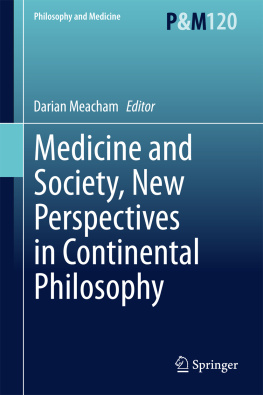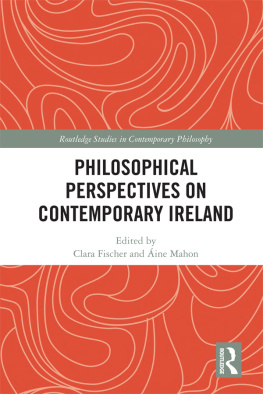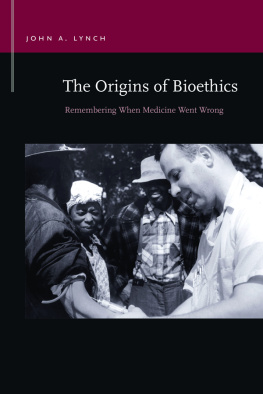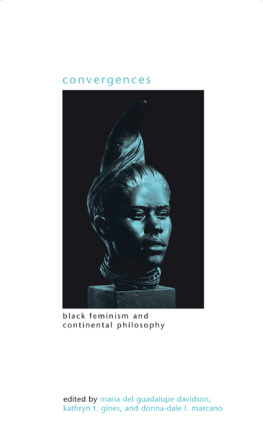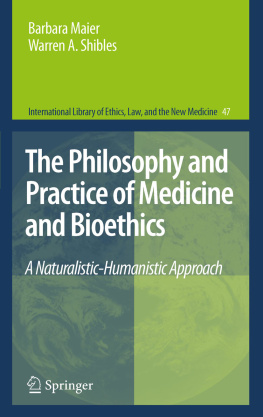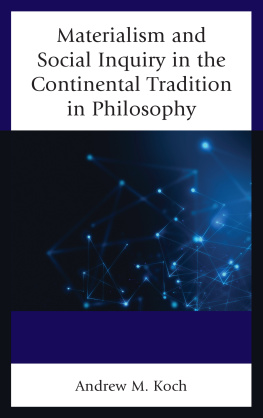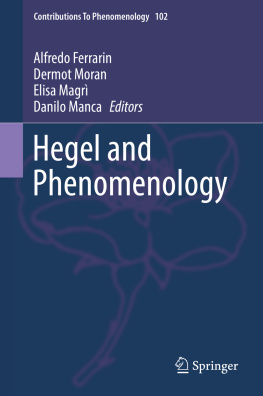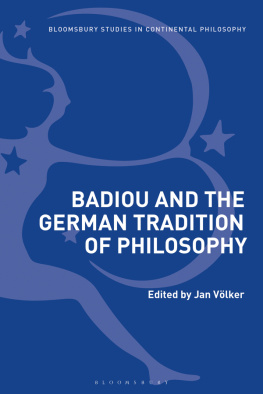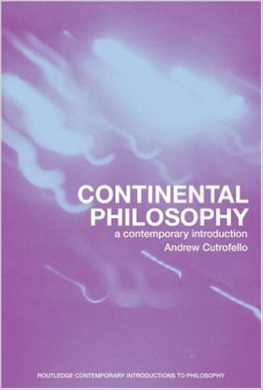1. Introduction
It usually falls to an introduction such as this to explain the what and the why of the volume: what is contained in the contributions and why it is important. In this instance the two are more or less the same. What distinguishes continental approaches to bioethics and philosophy of medicine is precisely the reason why there is value in highlighting such approaches. Before elaborating on that rather vague contention, I would first like to say something briefly about how this volume came about. In 2012 I organized, together with Havi Carel, a series of public seminars on the rather broad theme of Medicine and Society. These took place in Bristol (UK), with the generous financial support of the Royal Institute of Philosophy and an Early Career Researcher grant that I had received from the University of the West of England. Some of the participants in that seminar series have also been kind enough to contribute to this volume: Niall Keane, Eran Dorfman, Christien van den Anker and Havi Carel. It is safe to say that the seminar series had what one might call continental leanings, meaning that nearly all of the participants approached the issues in bioethics and philosophy of medicine that they addressed with a perspective that was at least grounded in what could loosely be called continental philosophy. To be more specific, the participants approached the subject matter(s) at hand, to a greater or lesser degree, from within the varying conceptual frameworks of the phenomenological , hermeneutic , French epistemological , and post-structuralist traditions. The positive reception that these seminars received both from fellow academics and members of the interested general public convinced me of the value of showcasing the diversity of approaches and depth of analysis with which philosophers working with a background in continental philosophy address a wide range of problems pertaining to the relations between medicine and society. I should add a disclaimer that certainly not all of the philosophers who have contributed to this volume would accept the label of continental philosopher, but certainly all of the contributions have a grounding in continental philosophymore on that in a moment. Happily the series editors of Philosophy and Medicine agreed that such a volume would be a good idea. The initial plan was to take a specific set of problems prevalent in the current Anglo-American dominated bioethics discourse and ask philosophers who approached these problems from continental perspectives to address them. It was a good plan, but getting philosophers to move in an assigned direction is like herding cats. The initial plan also allowed the structure of the volume to be determined by a set of problems and philosophical frameworks that philosophers coming from a continental approach often wished to challenge. What I ended up with is in fact much more illustrative and representative of the breadth and depth of the emerging field(s) of continental bioethics and philosophy of medicine than the plan I had initially envisioned, for this I am grateful to the un-herdable contributors. The hope for this volume is that it can provide a kind of handbook illustrating the ways in which problems in bioethics and philosophy of medicine are currently being treated from within the continental traditions. In this sense, this volume follows in the footsteps of S.K. Toombs s Handbook of Phenomenology and Medicine (Springer 2002), which appeared in this series over a decade agoalthough the present collection has a broader scope of philosophical approaches. In doing so, this volume hopefully adds to a growing and impressive body of work in this area.
There is something of an elephant in the room that needs to be tackled before we move on: the infamous analytic-continental distinction in philosophy. This is not the place and I am not the person to be partisan about this distinction, and anyway one hopes that it carries less weight than it once did. Suffice to say that it may not be crazy to suggest that analytic philosophers might sometimes do well to pay more attention to the historical development of the problems they are working on, pay more heed to concrete social and political embeddedness of these problems, the subjects or persons they pertain to and the people that write about them, and finally, and this is a bit more specific, recognize the importance of the body in our relations with the world around us and with othersall things associated with more continental approaches. To stick with rather hackneyed distinctions, it would probably not hurt some continental philosophers to remember that they are working on problems, not reporting on a tradition. All philosophers, but perhaps especially those who consider themselves continental ones would do well to be rigorous not only in the careful attention to the historical development of problems but also in conceptual analysis and careful drawing of distinctions. The analytic emphasis on clear argumentation and careful clarification is of course valuable for all types of philosophy. All of the contributions here embody, I think, the best aspects of both traditions.
One area of supposed difference between continental and analytic philosophy that is of particular importance to bioethics and philosophy of medicine , as they bear such a close relation to the medical and technological sciences, is their general methodological relation to the natural sciences . Though it is by no means fair to apply this as a blanket statement, it does seem safe to say that generally speaking, analytic philosophy often sees itself as continuous with the natural sciences, which in their methodology present the most accurate manner of understanding phenomena. The task of philosophy is often understood as, if not being contiguous with the natural sciences, then being one of helping to clarify through logical analysis the methodology, goals and findings of the natural sciences. This leads into sticky situations when dealing with traditional areas of philosophy that the natural sciences cannot account for, namely consciousness and ethics, the latter of which a colleague of mine, Iain Hamilton Grant , astutely refers to as the acceptable face of anti-scientific realism. This is not the venue for diving into the deep end of either the hard problem of consciousness or the difficulties of the various forms of ethical naturalism. What is relevant in this context is the perception that continental philosophy has a very different but not necessarily less friendly relation with the natural sciences. For example, Georges Canguilhem , whose influence is felt throughout this volume, was also a medical doctor and certainly considered himself not just a man of science but a naturalist. It does seem fair to say however that continental philosophy, generally speaking, argues that the natural sciences are grounded in pre-theoretical conditions of givenness, as in various versions of Kant ian transcendentalism or phenomenological notions of the lifeworld . The Kantian project and the phenomenological one that grew out of it both sought to locate a firm transcendental ground for the natural sciences. This idea of the need for a proper ground of the natural sciences that would account for and be aware of the various presuppositions that natural scientific inquiry often took for granted persisted through historicist, post-structuralist and also feminist encounters between science and continental philosophy. However, as Gilbert Hottois and Charles Wolfe point out in this volume, there has long been a close relation between the French biophilosophy of Georges Canguilhem, Gilbert Simondon and Raymond Ruyer , and the biological and medical sciences. Maurice Merleau-Ponty , perhaps the most important representative of the phenomenological tradition in relation to philosophy of medicine, owing to his phenomenological accounts of the body and the ill body in particular, was greatly influenced in his early work by the German neurologist Kurt Goldstein , and later by biologists like Jakob von Uexkll , Konrad Lorenz , and E.S. Russell as well as Ruyer. Where the continental approach perhaps differs from the analytic vis -- vis the natural sciences is that rather than seeing philosophy as playing a complementary or clarifying role in relation to the findings of the natural sciences, continental approaches have seen their role as participating in the foundationalist project of the sciences, in other words establishing what is, as well as critiquing the methods of the sciences. As Canguilhem writes in his essay Machine and Organism: Far from coming belatedly to occupy an abandoned viewpoint, philosophy points science toward a position to take. This is the case with the phenomenological projects pursued by Edmund Husserl and Merleau-Ponty in critiquing what they took to be a nave foundationalism that can pervade scientific discourse. It is also the case with the post-structuralist critique of knowledge one finds in Michel Foucault or feminist critiques from philosophers like Evelyn Fox Keller and Donna Haraway . As the chapters that begin (Hottois) and end (Allouche) this volume attest and implore, philosophy should not shy away from what might even be called a speculative stance vis -- vis technoscience though I am relatively certain that not all the contributors in between would agree.

